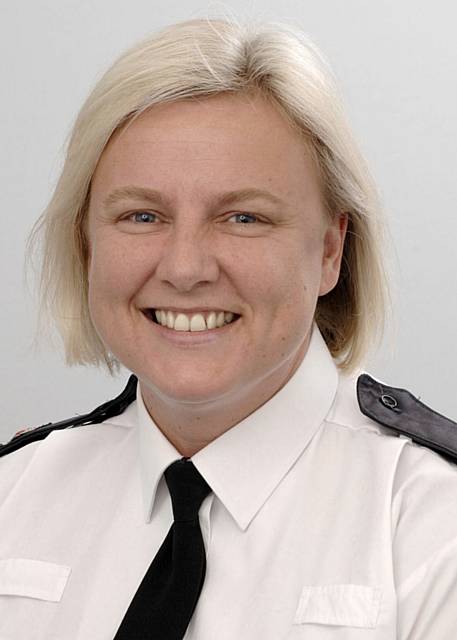Organs storage families visited
Date published: 17 March 2017

Assistant Chief Constable Debbie Ford
Greater Manchester Police is contacting relatives of 180 victims of crime whose body parts were stored in secret for at least a decade.
The body parts of the 180 victims, from Greater Manchester, which were taken and stored without relatives being informed, were uncovered during an audit of the organs still kept for GMP after the Alder Hey scandal.
GMP is now contacting relatives to ask how they wish to dispose of the remains which predate 1 September 2006, when legislation came into force banning the removal or storage of human tissue without families' consent.
An audit of all human tissue stored in England and Wales in 2012 revealed 492 whole organs or 'significant' body parts were kept at police stations, labs and hospital mortuaries on behalf of the police in murder of suspicious death cases.
All of these remains were retained before 2006 when the Human Tissue Act came into force after the Alder Hey scandal when tissue from dead babies was retained without families being told.
The act makes it illegal to remove or store human tissue without consent.
GMP bosses decided the families should know and started visiting each one late last year.
Assistant Chief Constable Debbie Ford said: "Following a review of human tissue samples held by the former Forensic Science Service in 2014, GMP was told it held a number that related to investigations.
"Once we knew about the samples we felt that such a sensitive issue was never going to be solely about following the regulations or the letter of the law.
"For this reason we consulted with relevant people, including community and faith groups, as well as our Ethics Committee.
"Following this extensive consultation it was agreed we had a moral duty to inform the next-of-kin in the vast majority of cases.
"Since then, a team of detectives has been working to categorise the samples and to ensure everything possible has been done to locate the families. In September 2016 we started the long process of going to visit the families relating to the 180 samples deemed to be appropriate for a visit.
"Each family is being told about the sample held that was taken from their loved and how they were taken for investigative reasons. They have also been told that some samples, for various reasons, remain unaccounted for.
"Finally, they have been given a range of options for sensitive disposal of the samples, all of which GMP will pay for."
She added: "This is a deeply sensitive matter for the families and the decision to contact them was not taken lightly. In fact it was a decision that we agonised over for months with independent advisory groups, partner agencies and professionals.
"As with all cases we have offered them specialist support.
"We have spoken to dozens of families and in many cases they have thanked us for the visit. We accept that everyone reacts differently."
Do you have a story for us?
Let us know by emailing news@rochdaleonline.co.uk
All contact will be treated in confidence.
Most Viewed News Stories
- 1Royton haulage firm fined after Rochdale dad went to work and didn’t come home
- 2Six men arrested in Rochdale child exploitation investigation
- 3Suspended council candidate was ‘politically naive’ for appearing in George Galloway video, leader...
- 4Rochdale church to host Camerados public living room
- 530 years of the GEM Appeal, a Rochdale-founded charity that has raised millions and changed the...
To contact the Rochdale Online news desk, email news@rochdaleonline.co.uk or visit our news submission page.
To get the latest news on your desktop or mobile, follow Rochdale Online on Twitter and Facebook.


